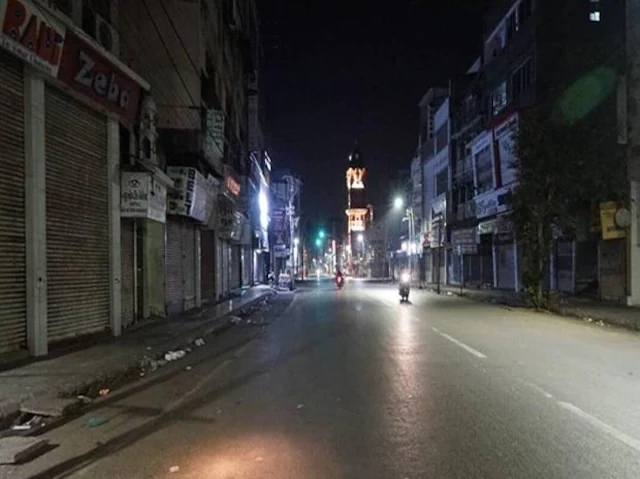Bangladesh to shut down all shops after 8 PM under section 114 of Bangladesh Labour Law (2006) in order to conserve energy to save the country from a steep price hike in energy cost because of the ongoing Russia-Ukraine war, as ordered by the Bangladesh Prime Minister Sheikh Hasina.

The Prime Minister’s Office in a letter dated June 17, 2022 announced the order on PM Sheikh Hasina’s instructions to several ministries, departments and local authorities, stating that the Bangladesh Labour Act already stipulates the closure of all shops after at 8:00pm, that is, Bangladesh to shut down all shops after 8 PM. The Prime Minister’s Office has sent a letter to the concerned to ensure proper implementation of this directive.
All concerned ministers, authorities and divisions, such as the commerce and industry ministry, public security division, energy and mineral division, power division, Department of Inspection for Factories and Establishments, deputy inspector generals of police, deputy commissioner and superintendent of all divisions and districts have been asked to execute this order strictly under the section 114 of Bangladesh Labour Law (2006).
The above-mentioned concerned officials are asked to take all key steps to close stores, shops, shopping malls and marketplaces throughout the country every day after 8 pm. As reported by the Bangladesh national news agency BSS, these measures have been taken in an attempt to save electricity and energy in the face of ongoing power and energy price hikes throughout the world amidst the Russia-Ukraine war.
Helal Uddin, president of Bangladesh Dokan Malik Samity said that,” the government has taken such a decision with such haste and speed in order to save power following soaring price of oil across the globe due to the Russia-Ukraine war, therefore there remains no alternative but to abide by this decision.”
He also said that the government didn’t discuss with them while taking decisions on such an important issue. Although there is a provision under the existing Bangladesh Labour law that people will work from 10:00am to 8:00pm, we never needed to follow it due to reasonable grounds.”
According to BetterWork.org (https://betterwork.org/portfolio/bangladesh-labour-act-2006/), the Bangladesh Labour Act of 2006 solidifies and changes the laws governing labour employment, employer-employee interactions, wage payment, compensation for worker accidents, and other labour-related issues.
Another cause leading to Bangladesh’s shut down of shops after 8 PM

Bangladesh is experiencing severe floods. Hundreds of thousands of individuals have been trapped in Bangladesh’s northeastern and northern areas due to heavy monsoon rains. According to official declarations and news reports released early Saturday, military forces had been sent in evacuation and rescue efforts. And according to the United News of Bangladesh agency, lightning hit the delta nation on Friday, killing nearly nine people.
Floods have already severely damaged the northeastern regions of Sunamganj and Sylhet, cutting residents off from power and inundating hundreds of houses, according to the military’s Inter-Service Public Relations office on its website.
Read more- RBI cancels Millath Co-operative Bank’s licence in view of public interest
Meanwhile, the government’s Flood Forecasting and Warning Centre in Dhaka gave a statement warning that water levels were surging in all major rivers throughout the nation, which has around 130 rivers.
Flight operations at the Osmani International Airport in Sylhet were halted for three days, according to Hafiz Ahmed, the airport’s manager. Flood water has nearly touched the runway, as per fresh media reports.
Since Bangladesh is a low-lying country with a population of 160 million people, it is vulnerable and unavoidable to climate-related natural disasters like floods and cyclones. As per the United Nations’ Intergovernmental Panel on Climate Change, roughly 17% of Bangladesh’s population would need to migrate in the next decade or so if global warming continues at its current rate.
India’s steady power and energy rise
India, meanwhile, has also been experiencing a higher demand of power as it jumped by a record 40,000-45,000 MW per day. This intense rise sweeps through northern parts of the country for which the economy expands, and electricity reaches millions of unelectrified homes, as said by the Power Minister RK Singh.
The Modi government ensured 23 to 23.5 hours of electricity supply into one transmission grid and strengthened the distribution system during eight years of his government.













